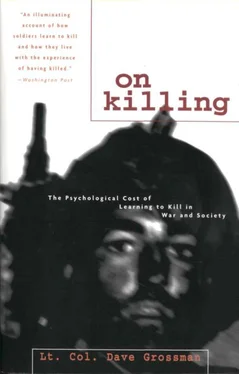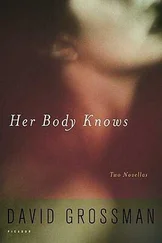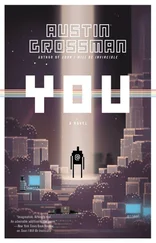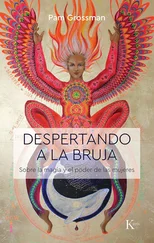And then, by the period that we know as the Victorian era, everything had changed. Suddenly the average middle-class family lived in a multiroom dwelling. Children grew up having never witnessed the primal act. And suddenly sex became hidden, private, mysterious, frightening, and dirty. The era of sexual repression in Western civilization had begun.
In this repressed society, women were covered from neck to ankle, and even the furniture legs were covered with skirts, since the sight of these legs disturbed the delicate sensitivities of that era. Yet at the same time that this society repressed sex, it appears to have become obsessed by it. Pornography as we know it blossomed. Child prostitution flourished. And a wave of sexual child abuse began to ripple down through the generations. [1] I would like to note that some friends (such as the noted historian Bill Lind, author of the superb book Retroculture) disagree with this representation of Victorian sexual repression, but I have yet to meet a single individual who disagrees with the analysis of our modern repression outlined here, and that is the pertinent point.
Sex is a natural and essential part of life. A society that has no sex has no society in one generation. Today our society has begun the slow, painful process of escaping from this pathological dichotomy of simultaneous sexual repression and obsession. But we may have begun our escape from one denial only to fall into a new and possibly even more dangerous one.
A new repression, revolving around killing and death, precisely parallels the pattern established by the previous sexual repression. Throughout history man has been surrounded by close and personal death and killing. When family members died of disease, lingering injury, or old age they died in the home. When they died anywhere close to home, their corpses were brought to the house — or cave, or hut, or hovel — and prepared for burial by the family.
Places in the Heart is a movie in which Sally Field portrays a woman on a small cotton farm early in this century. Her husband has been shot and killed and is brought to the house. And, repeating a Ritual that has been enacted for countless centuries by countless millions of wives, she lovingly washes his naked corpse, preparing it for burial as tears streak down her face.
In that world each family did its own killing and cleaning of domestic animals. Death was a part of life. Killing was undeniably essential to living. Cruelty was seldom, if ever, a part of this killing. Mankind understood its place in life, and respected the place of the creatures whose deaths were required to perpetuate existence. The American Indian asked forgiveness of the spirit of the deer he killed, and the American farmer respected the dignity of the hogs he slaughtered.
As Garrison Keillor records in “Hog Slaughter,” the slaughter of animals has been a vital Ritual of daily and seasonal activity for most people until this last half century of human existence. Despite the rise of the city, by the opening of the twentieth century the majority of the population, even in the most advanced industrial societies, remained rural. The housewife who wanted a chicken dinner went out and wrung the chicken’s neck herself, or had her children do it. The children watched the daily and seasonal killings, and to them killing was a serious, messy, and slightly boring thing that everyone did as a part of life.
In this environment there was no refrigeration, and few slaughterhouses, mortuaries, or hospitals. And in this age-old living arrangement, throughout the life cycle, from birth to death, death and killing were always before you — either as a participant or a bored spectator — and no one could deny that it was a vital, essential, and common aspect of daily human existence.
And then, in just the last few generations, everything began to change. Slaughterhouses and refrigeration insulated us from the necessity of killing our own food animals. Modern medicine began to cure diseases, and it became increasingly rare for us to die in the youth and prime of our lives, and nursing homes, hospitals, and mortuaries insulated us from the death of the elderly. Children began to grow up having never truly understood where their food came from, and suddenly Western civilization seemed to have decided that killing, killing anything at all, was increasingly hidden, private, mysterious, frightening, and dirty.
The impact of this ranges from the trivial to the bizarre. Just as the Victorians put skirts around their furniture to hide the legs, now mousetraps come equipped with covers to hide the killer’s handiwork. And laboratories conducting medical research with animals are broken into, and lifesaving research is destroyed by animal-rights activists. These activists, while partaking of the medical fruits of their society — fruits based upon centuries of animal research — attack researchers. Chris DeRose, head of the Los Angeles-based activist group Last Chance for Animals, says: “If the death of one rat cured all diseases it wouldn’t make any difference to me. In the scheme of life we’re equal.”
Any killing offends this new sensibility. People wearing fur or leather coats are verbally and physically attacked. In this new order people are condemned as racists (or “speciests”) and murderers when they eat meat. Animal-rights leader Ingrid Newkirk says, “A rat is a pig is a boy,” and compares the killing of chickens to the Nazi Holocaust. “Six million people died in concentration camps,” she told the Washington Post, “ but six billion broiler chickens will die this year in slaughterhouses.”
Yet at the same time that our society represses killing, a new obsession with the depiction of violent and brutal death and dismemberment of humans has flourished. The public appetite for violence in movies, particularly in splatter movies such as Friday the 13th, Halloween, and The Texas Chainsaw Massacre; the cult status of “heroes” like Jason and Freddy; the popularity of bands with names like Megadeth and Guns N’ Roses; and skyrocketing murder and violent crime rates — all these are symptoms of a bizarre, pathological dichotomy of simultaneous repression and obsession with violence.
Sex and death are natural and essential parts of life. Just as a society without sex would disappear in a generation, so too would a society without killing. Every major city in our nation must exterminate millions of rats and mice each year or become uninhabitable. And granaries and grain elevators must exterminate millions of rats and mice each year. If they fail to do this, instead of being the world’s breadbasket the United States would be unable to feed itself, and millions of people around the world would face starvation.
Certain genteel sensitivities of the Victorian era are not without value and benefit to our society, and few would argue for a return to communal sleeping arrangements. In the same way, those who hold and espouse modern sensibilities about killing are generally gentle and sincere human beings who in many ways represent the most idealistic characteristics of our species, and their concerns have great potential value once we bring them into perspective. As technology enables us to butcher and exterminate whole species (including our own), it is vital that we learn restraint and self-discipline. But we must also remember that death has its place in the natural order of life.
It seems that when a society does not have natural processes (such as sex, death, and killing) before it, that society will respond by denying and warping that aspect of nature. As our technology insulates us from a specific aspect of reality, our societal response seems to be to slip deep into bizarre dreams about that which we flee. Dreams spun from the fantasy stuff of denial. Dreams that can become dangerous societal nightmares as we sink deeper into their tempting web of fantasy.
Читать дальше







